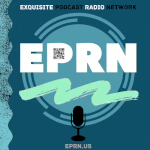In the vibrant landscape of Charlotte, North Carolina, the city's prosperity shines, but challenges persist. To foster true unity with equity, it's essential to implement comprehensive programs that address not only mental, spiritual, physical, and financial health but als
o embark on a reparations process aimed at dismantling systemic barriers. This article delves into the intricacies of projects designed to bring about unity with equity, focusing on tangible aspects of group economics and shared equity to foster upward mobility.
Equitable Mental Health Initiatives:
Recognizing the historical disparities in mental health access, Charlotte's programs must be intentional in addressing these issues. Implementing mental health initiatives tailored to communities that have been historically underserved can bridge the gap. Culturally competent counseling services, community-based mental health clinics, and support groups that acknowledge the impact of systemic inequities on mental well-being can contribute to a more inclusive and equitable approach to mental health.
Inclusive Spiritual Well-being:
To ensure equity in spiritual well-being, it is imperative to acknowledge and celebrate the diverse spiritual practices within the community. Programs should actively engage with religious and spiritual organizations to create inclusive spaces for worship, meditation, and community-building. Initiatives that promote dialogue and understanding among different faith traditions can foster unity and shared values, contributing to the city's rich tapestry of spiritual diversity.
Equity in Physical Fitness and Healthy Living:
Addressing barriers to physical well-being requires intentional efforts to provide equal access to fitness resources. Charlotte's programs should prioritize underserved neighborhoods by investing in parks, recreation centers, and fitness programs tailored to their needs. By collaborating with local fitness professionals and ensuring representation in wellness initiatives, the city can promote equity in physical health and foster a culture of well-being for all residents.
Understanding the Holistic Needs:
-
Mental Health Support: Crime victims often experience profound mental health challenges resulting from their traumatic experiences. Tailoring programs to provide access to counseling, therapy, and support groups can significantly contribute to their healing process.
-
Physical Well-being: Recognizing the importance of physical health, shelters can collaborate with healthcare providers to offer regular check-ups, vaccinations, and access to fitness programs. This holistic approach ensures that individuals are not only mentally resilient but also physically healthy.
-
Emotional Resilience: Building emotional resilience is vital for individuals to navigate the complexities of rebuilding their lives. Incorporating emotional intelligence workshops, mindfulness practices, and peer support can contribute to their emotional well-being.
-
Financial Stability Programs: Enabling individuals to regain financial independence is paramount. Implementing financial literacy programs, job training initiatives, and mentorship opportunities can empower them to overcome economic challenges and reestablish stability.
Successful Models in Other Cities:
-
San Francisco's Comprehensive Men's Health Program: San Francisco has successfully implemented a comprehensive men's health program that addresses mental health, physical well-being, emotional resilience, and financial stability. By collaborating with healthcare professionals, financial advisors, and mental health experts, the program provides a holistic support system.
-
New York City's ThriveNYC Initiative: New York City's ThriveNYC initiative focuses on mental health support, emphasizing the importance of community-based care. By integrating mental health services into homeless shelters, the program has shown positive outcomes in aiding individuals on their path to recovery.
Reparations in Financial Education and Empowerment:
Charlotte's journey toward unity with equity should involve targeted reparations programs in financial education and empowerment. Initiatives should focus on communities historically disadvantaged by discriminatory economic policies. By providing access to financial literacy programs, mentorship opportunities, and resources that encourage entrepreneurship, the city can actively contribute to dismantling economic disparities and promoting upward mobility.
In conclusion as Charlotte pioneers holistic programs for well-being, the incorporation of reparations initiatives adds a crucial layer to the city's commitment to equity. By addressing historical injustices and dismantling systemic barriers, these programs contribute to a unified and thriving community. As the city builds a future where every resident can prosper, the emphasis on tangible aspects of group economics and shared equity propels Charlotte towards a model of equitable unity and upward mobility, setting a standard for cities across the nation.

Comments